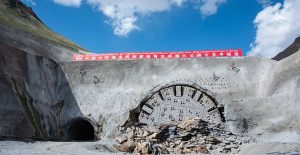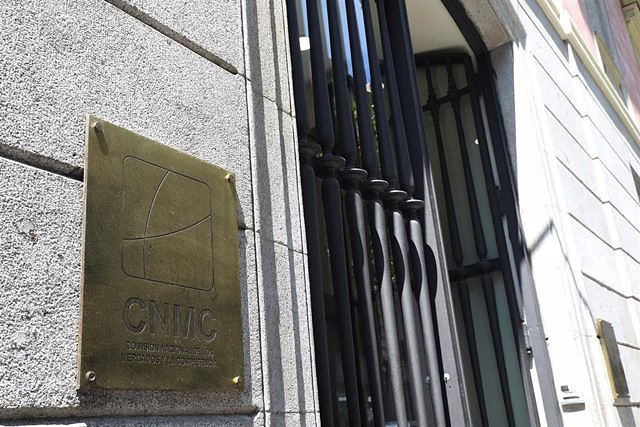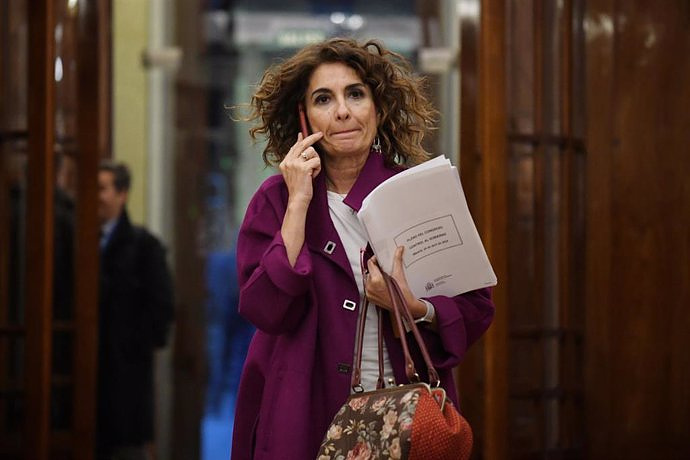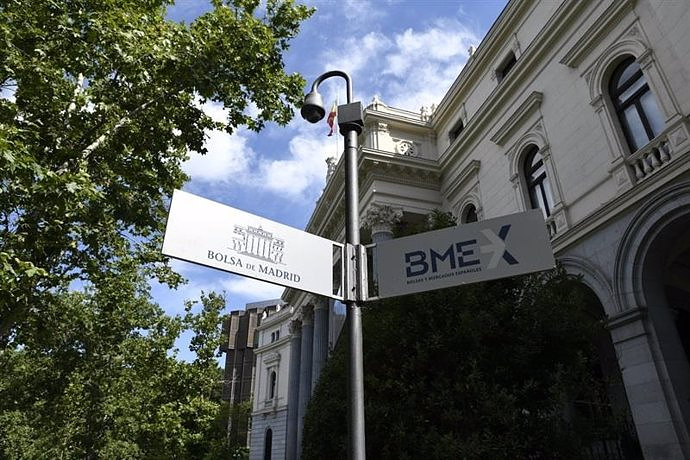MADRID, 7 Jul. (EUROPA PRESS) -
The National Commission of Markets and Competition (CNMC) has imposed fines for a total amount of 203.6 million euros to six of the main Spanish construction companies for having altered thousands of public tenders for building and civil works for 25 years of infrastructures. In addition, it has determined the prohibition to these companies to contract with the Administration.
The companies and sanctions imposed by Competition are Acciona (29.4 million), Dragados (57.1 million), FCC (40.4 million), Ferrovial (38.5 million), OHL (21.5 million) and Sacyr ( 16.7 million), as reported this Thursday by Competition, which has declared the file of actions against the company Lantania.
The CNMC has explained that since 1992 these six companies met weekly and decided on the public contracts in which they were going to share technical work from their offers. In addition, they exchanged information about their strategy for presenting themselves to public tenders.
Among the thousands of affected tenders there are infrastructures of general interest such as hospitals, ports and airports and highways, according to the CNMC.
"These are practices whose effects have been especially harmful to society, since they affected thousands of tenders called by Spanish Public Administrations for the construction and building of infrastructures such as hospitals, ports and airports, roads, etc," underlines Competition.
Among the public administrations affected are basically those belonging to the field of development, including the Ministry of Development (current Ministry of Transport, Mobility and Urban Agenda) together with its dependent public business bodies and entities.
According to Competition, these behaviors constitute a very serious infringement of articles 1 of Law 15/2007, of July 3, on the Defense of Competition and 101 of the Treaty on the Functioning of the European Union.
THIS WAS THE MODUS OPERANDI OF THE PENALTIES
The body chaired by Cani Fernández explains that the 'modus operandi' of those sanctioned consisted of weekly meetings, which began in 1992, to analyze the public works tenders that had been published on different State contracting platforms.
In these meetings, the companies decided on the tenders in which they were going to share -among all or in a subgroup- part or all of the works that would make up the technical offers of the tenders. The works were commissioned jointly by the members of the group to external companies.
The companies could not modify the works generated jointly to present them in their offers without the knowledge and approval of the rest of the members of the group. The only customization allowed was the inclusion of logos and names of each company in the joint document "to give administrations an appearance of independence in the presentation of offers," describes the CNMC.
These six companies developed complex operating rules that evolved during the time that this irregular conduct lasted, adds Competition.
In addition, in the weekly meetings, the companies exchanged sensitive commercial information (different from that necessary to share the work), such as, for example, their intention to participate or not in tenders, or the intention to form UTEs (Temporary Union of Companies) and the members that would integrate them.
In the case of building and civil works contracts for infrastructures of general interest (hospitals, highways, airports, etc.), the technical offer was on many occasions the most important competitive variable during the period investigated. According to the CNMC, this reached 70% of the contest score, compared to 30% corresponding to the economic score.
The jobs shared by the construction companies were always scored by the administration as part of the technical offer. In some cases, around 5%, the companies came to share the bidding project that they were going to present to the Administration.
"The fact of sharing the technical offers and the exchange of information between bidders violate the duties of sole proposal and secrecy of the proposals and eliminate the independence required of companies in public procurement procedures," says the CNMC.
The agency indicates that the companies dissolved the group in 2017 and expressly stated that these agreements could be contrary to the rules of the Defense of Competition.
LOWER QUALITY OF TECHNICAL OFFERS
The sanctioned collusive agreements resulted in a lower variety and quality of the technical offers presented by the companies to the contracting Administration, warns Competition.
The behaviors also produced effects on the competing companies, which took part in the public contracts at a competitive disadvantage compared to the companies in this group, since they had to undertake a higher cost for the preparation of the technical proposals.
In addition, by not having the same strategic information as the companies that formed this group, the terms of fair competition among all the bidders were altered, affirms the CNMC.
"The aggregate effect that collusion practices had on competition must be taken into account, due to the large number of works in which there were shared works between companies of this group, the high amount that said works entailed and the prolonged duration in time of the practices", adds the organism.
The sanctioned anticompetitive behaviors lasted beyond the date of entry into force of the prohibition of contracting (October 22, 2015), for which Competition has sent the resolution to the Consultative Board of Public Procurement so that it determines its duration and scope. .
The CNMC recalls that a contentious-administrative appeal may be filed directly against these resolutions before the National High Court within two months from the day following their notification.

 Exploring Cardano: Inner Workings and Advantages of this Cryptocurrency
Exploring Cardano: Inner Workings and Advantages of this Cryptocurrency Seville.- Economy.- Innova.- STSA inaugurates its new painting and sealing hangar in San Pablo, for 18 million
Seville.- Economy.- Innova.- STSA inaugurates its new painting and sealing hangar in San Pablo, for 18 million Innova.- More than 300 volunteers join the Andalucía Compromiso Digital network in one month to facilitate access to ICT
Innova.- More than 300 volunteers join the Andalucía Compromiso Digital network in one month to facilitate access to ICT Innova.-AMP.- Ayesa acquires 51% of Sadiel, which will create new technological engineering products and expand markets
Innova.-AMP.- Ayesa acquires 51% of Sadiel, which will create new technological engineering products and expand markets Puigdemont believes that Sánchez can present a question of trust and "clarify all doubts"
Puigdemont believes that Sánchez can present a question of trust and "clarify all doubts" RELEASE: Automation Anywhere names Tim McDonough director of marketing
RELEASE: Automation Anywhere names Tim McDonough director of marketing RELEASE: Terra Drone, Unifly and Aloft launch UTM development for AAM aimed at global markets
RELEASE: Terra Drone, Unifly and Aloft launch UTM development for AAM aimed at global markets STATEMENT: The construction of the Gudauri tunnel in the Kvesheti-Kobi Highway Project of the North-Su Corridor has been successfully completed
STATEMENT: The construction of the Gudauri tunnel in the Kvesheti-Kobi Highway Project of the North-Su Corridor has been successfully completed How Blockchain in being used to shape the future
How Blockchain in being used to shape the future Not just BTC and ETH: Here Are Some More Interesting Coins Worth Focusing on
Not just BTC and ETH: Here Are Some More Interesting Coins Worth Focusing on Retrópolis brings the golden age of video games and computing to the UPV
Retrópolis brings the golden age of video games and computing to the UPV Looking for video games that value the neighborhoods of Valencia
Looking for video games that value the neighborhoods of Valencia UPV researchers improve the efficiency of air conditioning systems using a geothermal heat pump
UPV researchers improve the efficiency of air conditioning systems using a geothermal heat pump València is committed to citiverse and smart tourism to be "the reference technological hub of the Mediterranean"
València is committed to citiverse and smart tourism to be "the reference technological hub of the Mediterranean" A million people demonstrate in France against Macron's pension reform
A million people demonstrate in France against Macron's pension reform Russia launches several missiles against "critical infrastructure" in the city of Zaporizhia
Russia launches several missiles against "critical infrastructure" in the city of Zaporizhia A "procession" remembers the dead of the Calabria shipwreck as bodies continue to wash up on the shore
A "procession" remembers the dead of the Calabria shipwreck as bodies continue to wash up on the shore Prison sentences handed down for three prominent Hong Kong pro-democracy activists
Prison sentences handed down for three prominent Hong Kong pro-democracy activists ETH continues to leave trading platforms, Ethereum balance on exchanges lowest in 3 years
ETH continues to leave trading platforms, Ethereum balance on exchanges lowest in 3 years Investors invest $450 million in Consensys, Ethereum incubator now valued at $7 billion
Investors invest $450 million in Consensys, Ethereum incubator now valued at $7 billion Alchemy Integrates Ethereum L2 Product Starknet to Enhance Web3 Scalability at a Price 100x Lower Than L1 Fees
Alchemy Integrates Ethereum L2 Product Starknet to Enhance Web3 Scalability at a Price 100x Lower Than L1 Fees Mining Report: Bitcoin's Electricity Consumption Declines by 25% in Q1 2022
Mining Report: Bitcoin's Electricity Consumption Declines by 25% in Q1 2022 Oil-to-Bitcoin Mining Firm Crusoe Energy Systems Raised $505 Million
Oil-to-Bitcoin Mining Firm Crusoe Energy Systems Raised $505 Million Microbt reveals the latest Bitcoin mining rigs -- Machines produce up to 126 TH/s with custom 5nm chip design
Microbt reveals the latest Bitcoin mining rigs -- Machines produce up to 126 TH/s with custom 5nm chip design Bitcoin's Mining Difficulty Hits a Lifetime High, With More Than 90% of BTC Supply Issued
Bitcoin's Mining Difficulty Hits a Lifetime High, With More Than 90% of BTC Supply Issued The Biggest Movers are Near, EOS, and RUNE during Friday's Selloff
The Biggest Movers are Near, EOS, and RUNE during Friday's Selloff Global Markets Spooked by a Hawkish Fed and Covid, Stocks and Crypto Gain After Musk Buys Twitter
Global Markets Spooked by a Hawkish Fed and Covid, Stocks and Crypto Gain After Musk Buys Twitter Bitso to offset carbon emissions from the Trading Platform's ERC20, ETH, and BTC Transactions
Bitso to offset carbon emissions from the Trading Platform's ERC20, ETH, and BTC Transactions Draftkings Announces 2022 College Hoops NFT Selection for March Madness
Draftkings Announces 2022 College Hoops NFT Selection for March Madness



























